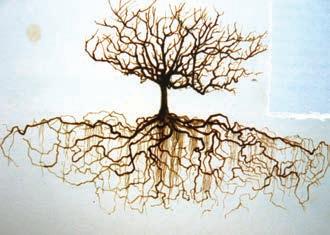OPINION / 08
NO TIME TO
WASTE PERMACULTURE HOLDS ZERO WASTE AS ONE OF ITS CORE PRINCIPLES. IT IS A HOLISTIC DESIGN PROCESS THAT CAN BE APPLIED AT GARDEN OR FARM SCALE OR ANY AREA OF LIFE OR BUSINESS TO MEET HUMAN NEEDS.
Féidhlim Harty provides some timely guidance on tackling waste in your business
H
as anybody noticed the price of materials lately? I've been renovating an old cottage and the refrain from each tradesman is of the spiralling costs of materials needed to finish the job. It's cheaper to buy new materials than for a tradesman to strip old ones for reuse. How can that be? I've got free timber on-site, from old partitioning upstairs. It just needs the nails removed and cut to size to build the kitchen unit frame. This is the case for glass, plywood, plumbing fittings, and the works. Yet, to ask any tradesman to work with these is to meet a placating laugh. At the same time, we know that resource consumption has a huge carbon footprint. It's frustratingly
28
HC / Summer 2022
©CREDIT KATE HARTY
So one issue is economies of scale, but the other is the scale of economies; specifically the disparity of global income bands and the structures that ensure that those stay in our favour. Charles Eisenstein writes far more eloquently than I can about this so look him up; or visit the Irish think tank Feasta (Foundation for the Economics of Sustainability). Another factor in this subject is low-cost energy used to produce new materials and transport them from forest to factory, to fitted kitchen. How low are fossil fuel costs really? Not low enough, it seems, for fossil fuel companies to pay their way. Globally, public money pays a staggering $5.2tn in THERE IS AMPLE direct and OPPORTUNITY FOR PLANT BASED SOLUTIONS TO indirect EXISTING WASTE PROBLEMS subsidies to THROUGHOUT OUR ECONOMY AND SOCIETY. support fossil fuels. Imagine what that sort of cash could do to build healthy, local, and ecologically regenerative industries, supplying goods and services of the highest standard! Closer to home is the phrasing of our Waste Management Act. According to Rachel Loughrey of the Irish Green Building Council, the Act provides serious obstructions clear that the more local a resource is to the recovery and reuse of viable grown, produced, and processed, the materials. With the stroke of a pen, lower the cost, carbon, and ecological this could be changed, allowing footprint involved. So why do we have for a whole new industry in the a situation where the cost of reusing existing resources is more than the cost regeneration and revitalisation of unused products and materials. of buying new, even as the cost of new While my focus is unapologetically spirals unrelentingly upwards? construction-related these months, Economies of scale certainly come this waste issue also relates directly into the equation. It's fiddly work getting old materials to the point where to the horticulture industry. Waste is always a double-sided process: they can be reused. Where automation what we buy to support our business is possible, it's almost universally and what we put on the market will cheaper to buy a machine to do a job eventually become waste. On the than to pay a person to do the same purchasing side we have compost or work; or to outsource the repetitive other growing media; pots; packing tasks of stitching our clothes or materials like crates, pallets, trays, assembling electronics components to bags, etc.; machinery; and often countries with lower wages, ecological office equipment, buildings, and regulation and social protections.













